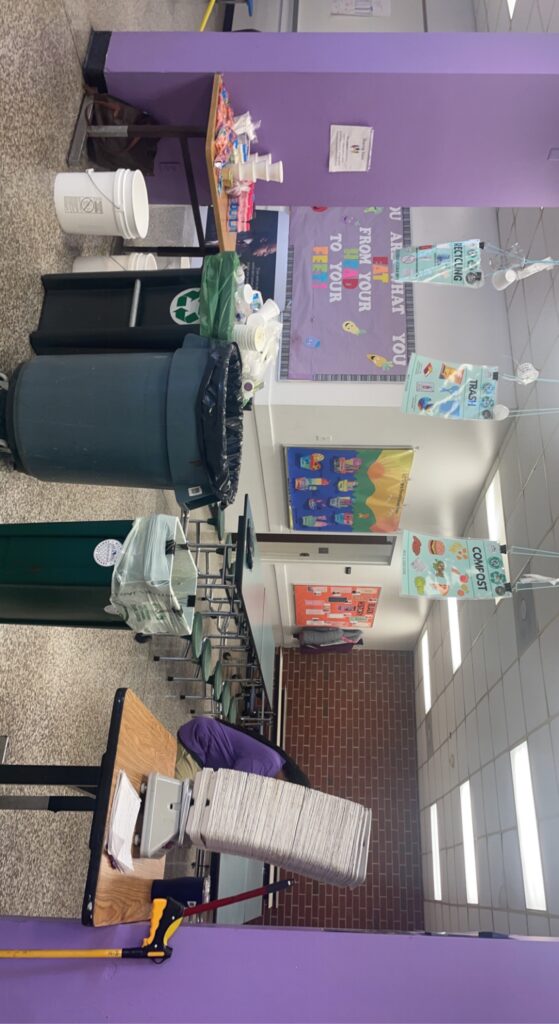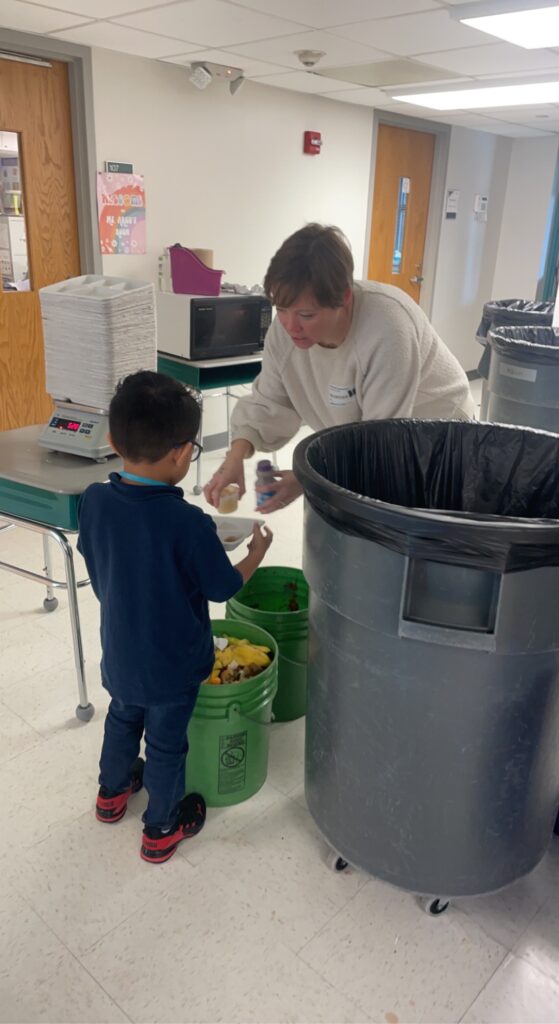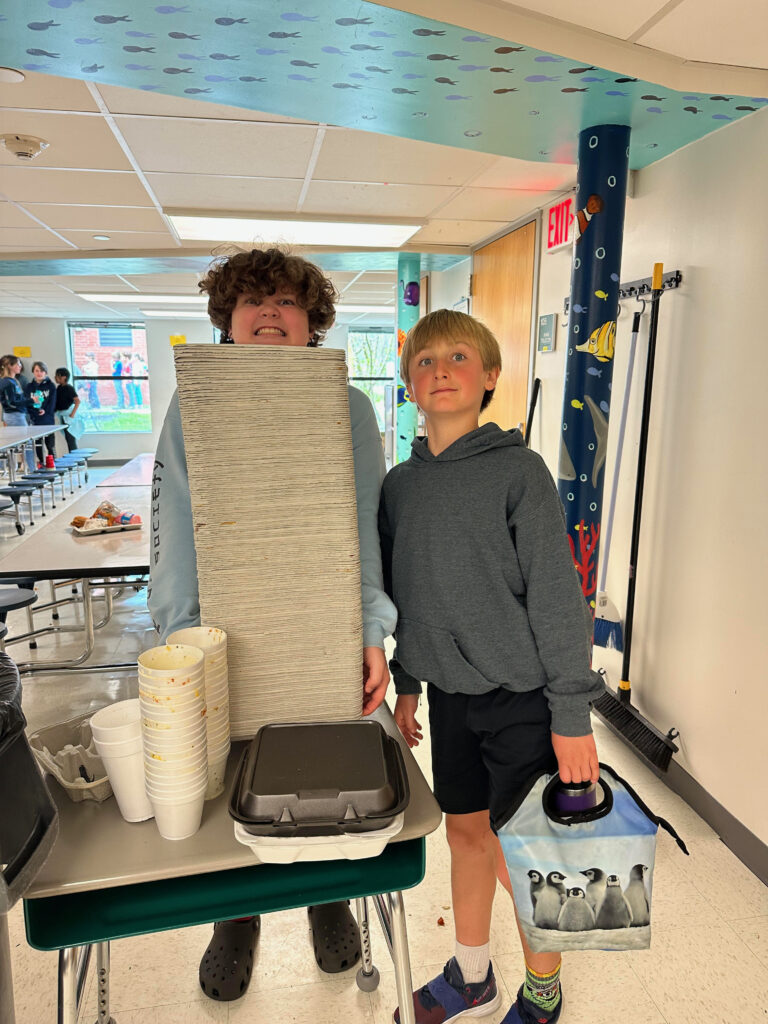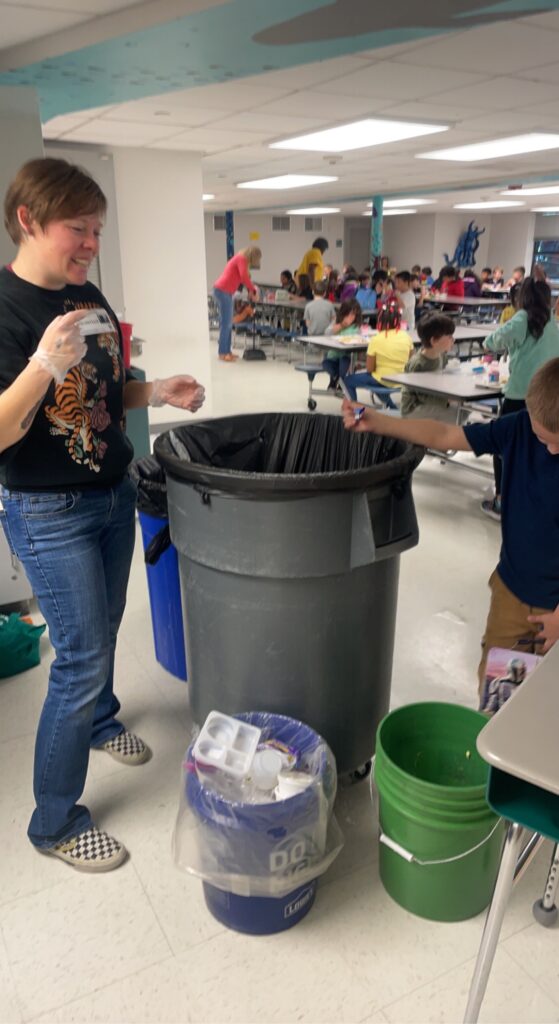Garbage to Gardens: A School Composting Program
go.ncsu.edu/readext?943381
en Español / em Português
El inglés es el idioma de control de esta página. En la medida en que haya algún conflicto entre la traducción al inglés y la traducción, el inglés prevalece.
Al hacer clic en el enlace de traducción se activa un servicio de traducción gratuito para convertir la página al español. Al igual que con cualquier traducción por Internet, la conversión no es sensible al contexto y puede que no traduzca el texto en su significado original. NC State Extension no garantiza la exactitud del texto traducido. Por favor, tenga en cuenta que algunas aplicaciones y/o servicios pueden no funcionar como se espera cuando se traducen.
Português
Inglês é o idioma de controle desta página. Na medida que haja algum conflito entre o texto original em Inglês e a tradução, o Inglês prevalece.
Ao clicar no link de tradução, um serviço gratuito de tradução será ativado para converter a página para o Português. Como em qualquer tradução pela internet, a conversão não é sensivel ao contexto e pode não ocorrer a tradução para o significado orginal. O serviço de Extensão da Carolina do Norte (NC State Extension) não garante a exatidão do texto traduzido. Por favor, observe que algumas funções ou serviços podem não funcionar como esperado após a tradução.
English
English is the controlling language of this page. To the extent there is any conflict between the English text and the translation, English controls.
Clicking on the translation link activates a free translation service to convert the page to Spanish. As with any Internet translation, the conversion is not context-sensitive and may not translate the text to its original meaning. NC State Extension does not guarantee the accuracy of the translated text. Please note that some applications and/or services may not function as expected when translated.
Collapse ▲ 
Article contributed by Kat Polk, Garbage to Gardens Program Coordinator
Garbage to Gardens, a school composting program, is growing in New Hanover County! The USDA recently granted New Hanover County a two-year Food Waste Reduction grant for $180,000 to operate and expand Garbage to Gardens. For the past year the N.C. Cooperative Extension and Friends of the New Hanover County Arboretum sponsored the program, which operates at DC Virgo Preparatory Academy and Winter Park Elementary School. Participating schools set up waste diversion stations in the cafeteria for students to separate liquids, recycling, compost, and trash. Students also stack trays to conserve space hauling the waste, and a share table is utilized for unopened, nonperishable items.
Children love practicing waste diversion habits, and learning how to properly discard their “trash.” The concept of throwing something “away” is archaic and obsolete. Landfill space is limited and at a high cost, financially and environmentally. Schools should be teaching students to recycle and compost, as well as the benefits of conserving those resources. Garbage to Gardens engages students with systems thinking, enabling them to connect the processes by which food is produced, transferred, consumed and wasted/conserved.

Additionally, environmental education and other learning opportunities are endless with Garbage to Gardens. The program allows students to learn interdisciplinary subjects with relevance to their lives. A scale in the cafeteria lets students make predictions and solve equations to figure out how many trays are discarded, or how many pounds of food are diverted from the landfill.
The generous grant this past year from Friends of the Arboretum allowed Garbage to Gardens to also work with Ms. Weeks, a 4th grade teacher at Winter Park Elementary School who selected Garbage to Gardens for her emerging leadership project. Throughout the 2022-2023 school year Ms. Weeks established student composting in the classrooms, and allowed Garbage to Gardens time to implement lessons and scientific experiments.

The Garbage to Gardens program coordinator, Kat Polk, also conducted a Soil Your Undies science experiment during Spring 2023 in aftercare programs hosted by the City of Wilmington. Students enjoyed seeing firsthand how organic materials can break down over time based on the soil type and presence of decomposers. Throughout 60 days students predicted a hypothesis, analyzed variables that may affect the cotton’s decomposition, and measured the final results. This experiment in the aftercare programs reiterated that regardless of age, the Garbage to Gardens program enriches the education of all students.
Now that the N.C. Cooperative Extension and NHC Arboretum Center successfully piloted the program, Garbage to Gardens is shifting to New Hanover County’s Department of Recycling and Solid Waste. The goal for the USDA grant is to sprout into 18 New Hanover County schools by 2025. With a 95% waste diversion rate when the program is implemented, Garbage to Gardens has the potential to both extend the lifespan of our landfill as well as to teach students valuable lessons about resource conservation and living sustainably.

A heartfelt thank you to the Friends of the Arboretum and the N.C. Cooperative Extension for your dedication and support to launching this important program.




